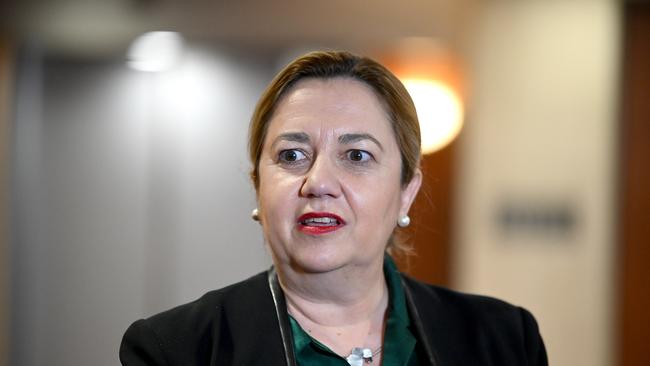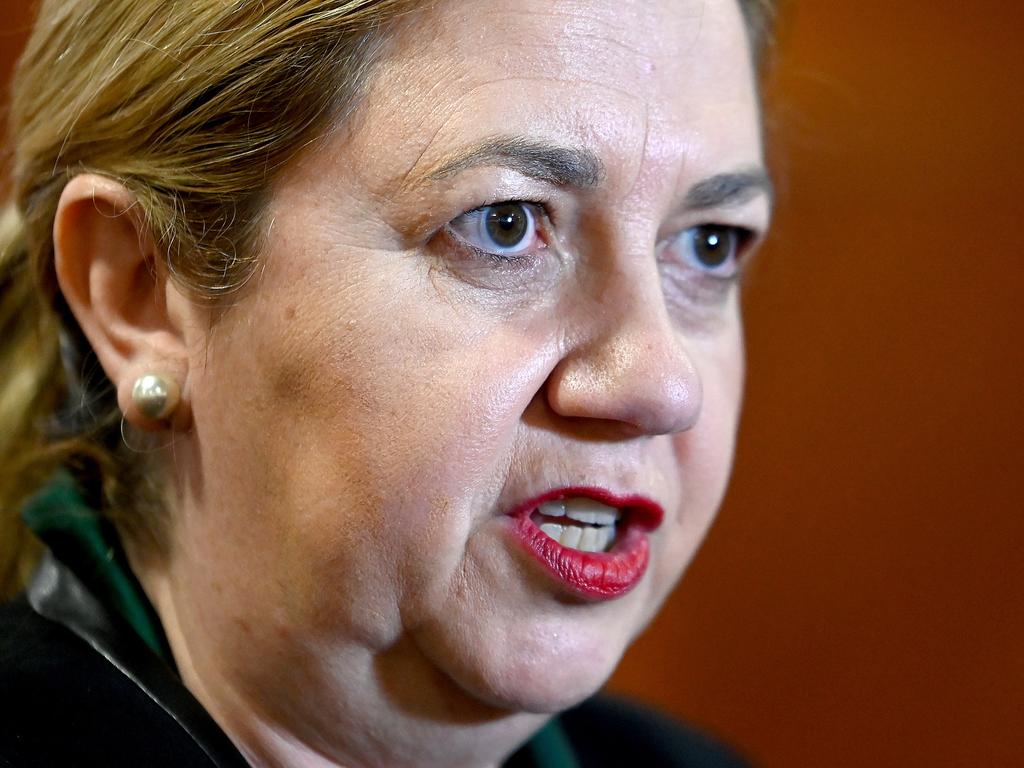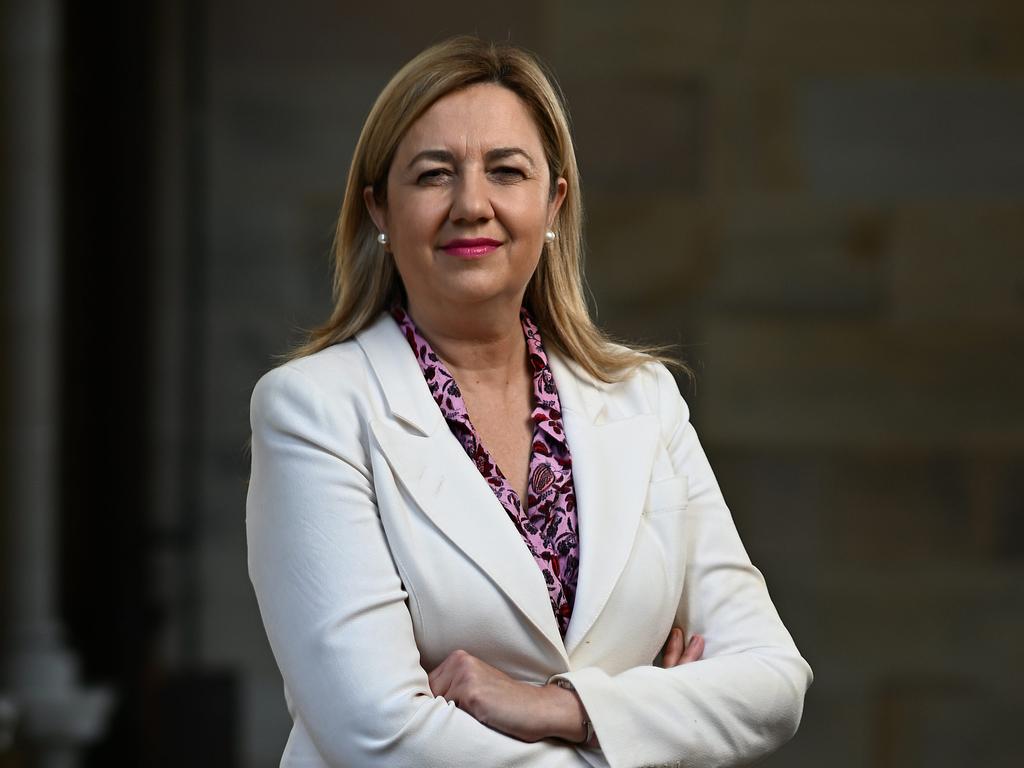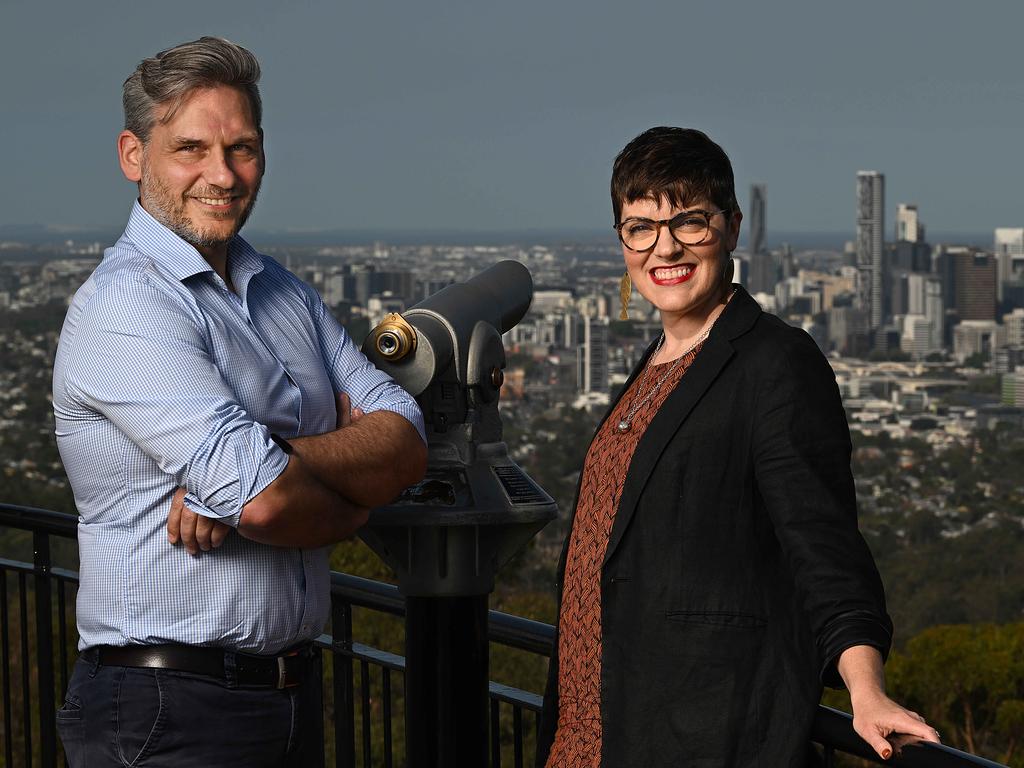Annastacia Palaszczuk’s orders secret taxpayer-funded polling ahead of 2024 state election
Annastacia Palaszczuk has ordered secret taxpayer-funded polling of Queenslanders to help shape her government’s policies and pitch to voters in the lead-up to the 2024 state election.

Annastacia Palaszczuk has ordered secret taxpayer-funded polling of Queenslanders to help shape her government’s policies and pitch to voters in the lead-up to the 2024 state election.
Explosive new documents, obtained by The Australian under Right to Information laws, reveal Ms Palaszczuk’s department has launched one of the state’s biggest polling projects, which will run for 66 weeks and end ahead of the October state election campaign.
At a cost to taxpayers of at least $393,000, the Palaszczuk government has commissioned “waves” of focus group research every six weeks from opinion polling company Ipsos Public Affairs that has been sent to cabinet.
The sentiment testing was ordered on May 9, a fortnight after published polls revealed the Liberal National Party had overtaken Labor on a statewide two-party-preferred basis for the first time since June 2020.
The contract was signed off by assistant director-general Michelle Wellington – a former veteran Labor political staffer who served as Ms Palaszczuk’s media adviser before she was appointed to the public service role – and the department’s reform and delivery director, Emmy Kubainski.
A veil of secrecy has been thrown over the polling, with the government refusing to reveal which specific topics are being canvassed with voters, or the research findings. In July, the Department of Premier and Cabinet initially told The Australian the research was commissioned ahead of the 2023-24 budget – delivered in June – to “better understand any barriers Queenslanders face in accessing government assistance”.
But heavily redacted documents secured under Right to Information laws revealed that was only one of the four stated purposes of the ongoing polling program.
The other “objectives” listed were to gain insights about “a range of issues facing everyday Queenslanders”, identify concerns about future policy direction, and examine voters’ views on the government’s community objectives – “good jobs, better services and great lifestyle”.
Findings from the first five waves of research – completed between May and October – are being kept secret because they have gone to cabinet and are bound by strict confidentiality rules.
A spokesman for Ms Palaszczuk said: “Cabinet considers a range of information such as expert research in formulating policies to provide direct help to Queenslanders, as do governments around the country”.
“Listening to Queenslanders means we’ve been able to focus on issues that matter to them like providing relief from national cost-of-living pressures. That’s why we delivered the recent cost-of-living budget, which is providing $8bn in cost-of-living relief for Queenslanders.”
Ahead of the last state election, Ms Palaszczuk’s department spent $528,000 of taxpayers’ money on polling voter sentiment about Covid-19 restrictions, and repeatedly refused to release the results.
Similar Covid polling was ordered by former Victorian Premier Daniel Andrews, and only released to The Australian after a two-year Freedom of Information battle.
The ability to charge taxpayers for data about voter perceptions is a controversial and key advantage for incumbent governments in election campaigns. It allows the government to shape policy and assess talking points before they are implemented.
As part of the Palaszczuk government’s Ipsos contract, pollsters have regular meetings with department officials to define the scope of each of the 10 waves of fieldwork and “debrief” with a PowerPoint presentation after results come in.
In each wave, 1200 people are surveyed and results broken down by “requested regions”.
Documents reveal the polling would “draw out Queenslanders’ views across a range of current issues and topics” to inform policy direction and target government programs.
“With topics chosen where there is a need to deep-dive into understanding of the community preferences, perception, resonance, unintended meanings, thoughts on use of language, clarity, and conciseness,” the contract said about the ongoing work.
The Ipsos project was ordered two weeks after public polls suggested Labor would lose the next election and just before Ms Palaszczuk ordered a frontbench reshuffle. The rare cabinet overhaul was made in a bid to rehabilitate her government’s image on main policy pressure points – health, housing and youth justice – ahead of the October 2024 election.
Opposition Leader David Crisafulli’s prosecution of youth crime issues has Labor insiders worried about whether the government will be able to hold on to crucial north Queensland electorates. Key inner-city seats are also under threat from the Greens, with the minor party weaponising Brisbane’s housing crisis to target seats with a high proportion of renters.
The Australian last week revealed Queensland unions were planning to poll on leadership alternatives to Ms Palaszczuk, amid growing frustration in the labour movement about the performance of the Premier.
On Monday, Ms Palaszczuk said she did not need union support to remain in her job.







To join the conversation, please log in. Don't have an account? Register
Join the conversation, you are commenting as Logout